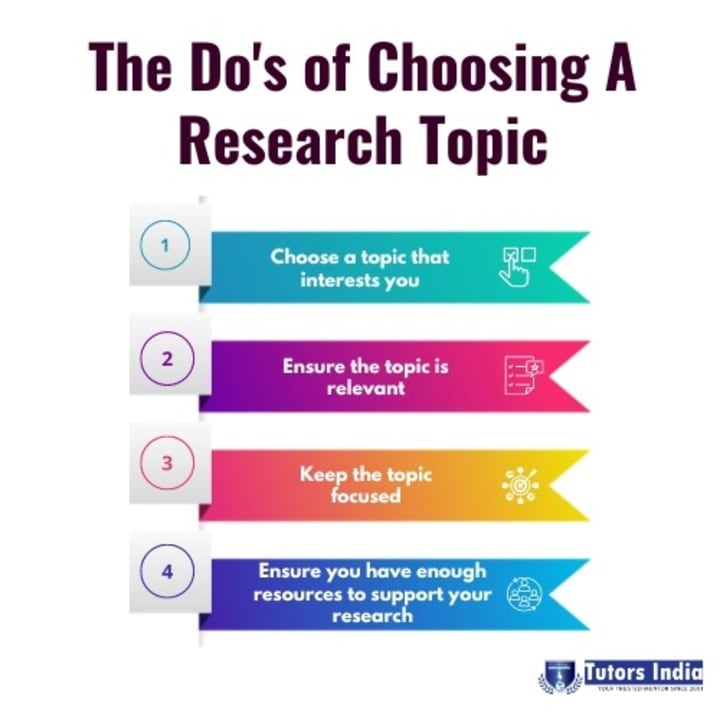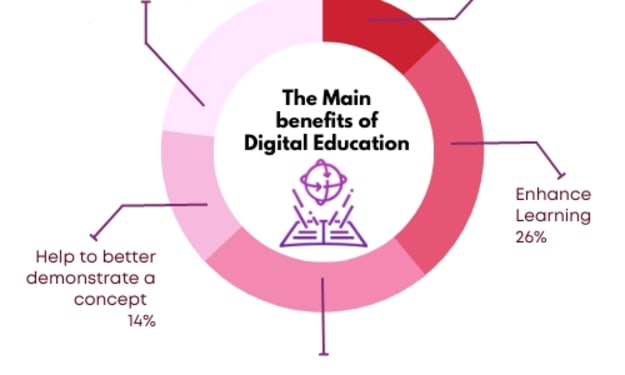How to Select the Right Research Topic?
Research Topic

In brief
One of the most significant decisions a student should make during their academic career is choosing the right research topic. Writing an academic paper requires a particular set of abilities and interests. Finding the correct method and determination to produce a contemporary, relevant piece of study is the most challenging aspect of a successful master's degree.
Introduction
Choosing appropriate research topics is a vital ability for any student to have. It's not simply the difference between producing a decent paper and falling flat on your face; it's also required if the process is to proceed smoothly. Creating a proper paper can cause students to feel a vast and impending burden hanging over their heads as time passes, but if you follow a few key steps, selecting the correct research subjects can be quick, straightforward, and even entertaining.
Try to keep your research topic:
• Unique
• Inventive and engaging
• Recent and topical
• Suitable for your interests
• Ignite your research enthusiasm
You can generally construct your research subject in one of two ways:
• Make a unique study topic idea. This is the most common choice in humanities, business, and law studies.
• A supervisor will present you with a list of possible research subjects. Unfortunately, this option isn't always accessible, but it is the most common in science and engineering.
• Discuss your ideas with a potential supervisor early on. They will be able to advise you on which of these options is ideal for you, as well as how to construct your research proposal.
How to come up with a unique research topic?

Here are some tips to guide you if you want to suggest an original topic:
• Read a range of resources to find a subject that interests you.
• Immerse yourself in journal papers and theses relating to your area.
• Focus on a specific research question. Be specific, one-of-a-kind, and realistic about your abilities.
• Make a concerted effort to be adaptive. As your inquiry proceeds, some of your early assumptions will likely be questioned. You may need to revise your question if required.
• Stay current on the newest developments in your industry. This ensures that your concept is realistic and has not been executed previously.
• Discuss research ideas with a friend. They may be able to assist you in narrowing down your topic by suggesting ideas you hadn't considered.
• Consider the following questions: why, who, what, where, and when:
o WHY did you choose this particular topic? What piques your curiosity about it? Do you have an opinion on the topics at hand?
o WHO are the sources of this information? Who might publish details about it? Who is impacted by the subject? Do you know of any organizations or institutions associated with the subject?
o WHAT are the most pressing questions concerning this subject? Is there a discussion on the subject? Is there a diverse variety of topics and points of view to consider?
o WHERE does your issue matter the most: locally, nationally, or internationally? Is the subject harming any specific areas?
o WHEN was/was your topic significant? Is this a current or historical issue? Do you want to compare your topic to other eras? The most crucial part is to keep you motivated during the journey.
The position of a supervisor is significant to keep you going. As a result, a strong and successful topic can be presented with persuasive arguments currently in practice.
Conclusion
The ability to investigate past research, identify gaps, and propose a topic to address the gap is critical in research paper writing. While choosing a good topic is vital, keep in mind that writing an amazing research project requires more than just a topic. Topic selection for the Research topic is important at Tutors India since the experience obtained at this stage will bring significant advantages (e.g., tractability, reach, data availability, obtaining a job, contribution to knowledge, gaining analytical skills, learning new methodology, work experience, resonance with organizational culture and improve research skills).





Comments
There are no comments for this story
Be the first to respond and start the conversation.